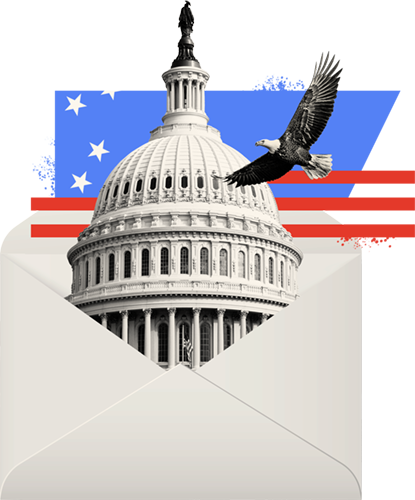National Security Leaders Weigh in on Unconventional Domestic National Guard Deployments in 2024
- April 30, 2024
Washington, DC – On April 29, Count Every Hero convened retired high-ranking military and former senior defense officials at the Brookings Institution in Washington, DC, to discuss the recent surge in state directed National Guard deployments and what that means for the United States military and the 2024 election. You can watch video of the event below:
Misuse of the National Guard for political purposes would threaten democratic norms under any circumstance, but in the context of an election year the stakes are even higher. Since 2020, there has been an uptick in domestic deployments of military personnel, as elected officials of both parties deploy the National Guard for nontraditional missions – ones that stray from providing assistance during natural disasters or violent civil unrest. These state active duty deployments often serve political goals, have already cost taxpayers billions of dollars, sometimes receive funding from questionable sources, and may be leading to burnout among Guard personnel.
Panel participants included Count Every Hero co-chair Craig R. McKinley, General (ret.) – United States Air Force, 26th Chief National of the Guard Bureau; as well as Joseph L. Lengyel, General (ret.) – United States Air Force, 28th Chief of the National Guard Bureau; Dr. Paul Stockton, Former Assistant Secretary of Defense for Homeland Defense and Americas’ Security Affairs; Daryl L. Bohac, Major General (ret.) – United States Air Force, Former Adjutant General of Nebraska and immediate past president of the Adjutants General Association of the United States; and Allyson Solomon, Brigadier General (ret.) – United States Air Force and former Assistant Adjutant General of Maryland. The discussion was moderated by Scott R. Anderson, Governance Studies Fellow, General Counsel and Senior Editor at Lawfare, with opening remarks by Kyle Miller, a national security policy strategist at Protect Democracy.

Want more Democracy Insights?Subscribe to our weekly newsletter
The discussion covered the impact of steady, prolonged, and often politicized state active duty deployments, including on unit readiness and mission clarity.
“A major problem with many nontraditional National Guard deployments – and the reason Count Every Hero got involved with this issue – is that too often we are unable to properly train and prepare our Guards for these one-off missions,” said General McKinley. “Failure to establish the rules of engagement and mission set leads to confusion, which makes it difficult to keep the force together, and not deploying as units, but individuals, creates command and control problems.”
“You want Americans to believe a situation will get better when the National Guard is there, which is why we must be able to separate our soldiers and airmen from politics,” added General Lengyel. “The impact these missions have on Guardsmen is the same regardless of the party of the governor who deploys them, and burnout is a real risk with overuse of the National Guard, especially for missions that are not as straightforward as saving lives, restoring order, or protecting property.”
“In state active duty status, protections and benefits – including medical coverage, disability insurance, and pay – vary by state, meaning that Guardsmen serving side by side may be doing so under vastly different circumstances,” said General Solomon. “Sustainability, therefore, is at the core of readiness of units – especially when we ask them to do something outside of their competency or comfort.”
“Civilian control of the military is not enough; we need democratic control and respect of the rule of law,” said Dr. Stockton. “Soldiers and airmen should not follow an unlawful order, but if they are not given proper mission-specific training, how will they know to question the legality of an order?”
“All military and civilian leaders take an oath to uphold the Constitution of the United States, but members of the National Guard also take an oath to uphold the constitution of the state they serve,” added General Bohac. “Guard members must be aware of what status they are in and as importantly what status they are not in, so we owe it to them to provide a clear framework.”
This initial conversation was the launch of a longer-term project of Count Every Hero, in collaboration with Protect Democracy, to prevent misuse of the military for political ends in 2024 and beyond. While it is premature to propose concrete solutions, the panelists did identify some areas to consider, including:
- Assessing Federal funding for nontraditional state active deployments
- Regular review of the rules of force and engagement so each mission is clear
- Accountability for leaders to place Guards in situations where they can perform optimally
- Fostering an environment where Guards can ask questions and get clarity
- Considering how deployments will affect retention
- Standardizing protections and benefits across states
Learn more about Count Every Hero Learn more about Count Every Hero
Related Content
It can happen here.
We can stop it.
Defeating authoritarianism is going to take all of us. Everyone and every institution has a role to play. Together, we can protect democracy.
Donate
Sign Up for Updates Sign Up for Updates
Explore Careers Explore Careers
How to Protect Democracy How to Protect Democracy

